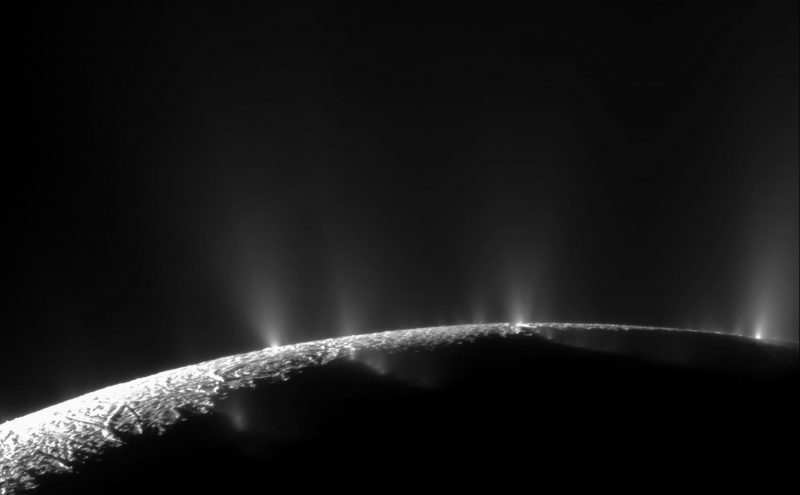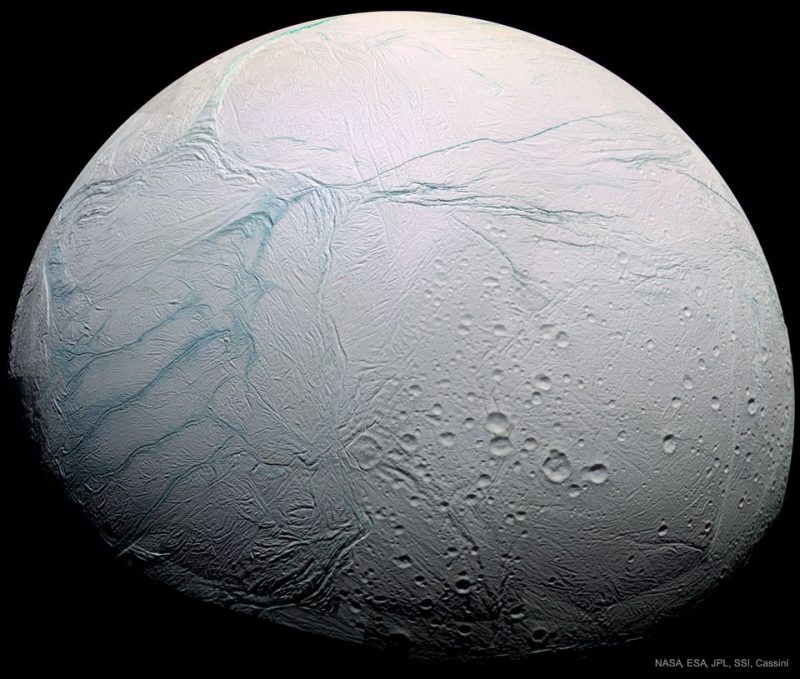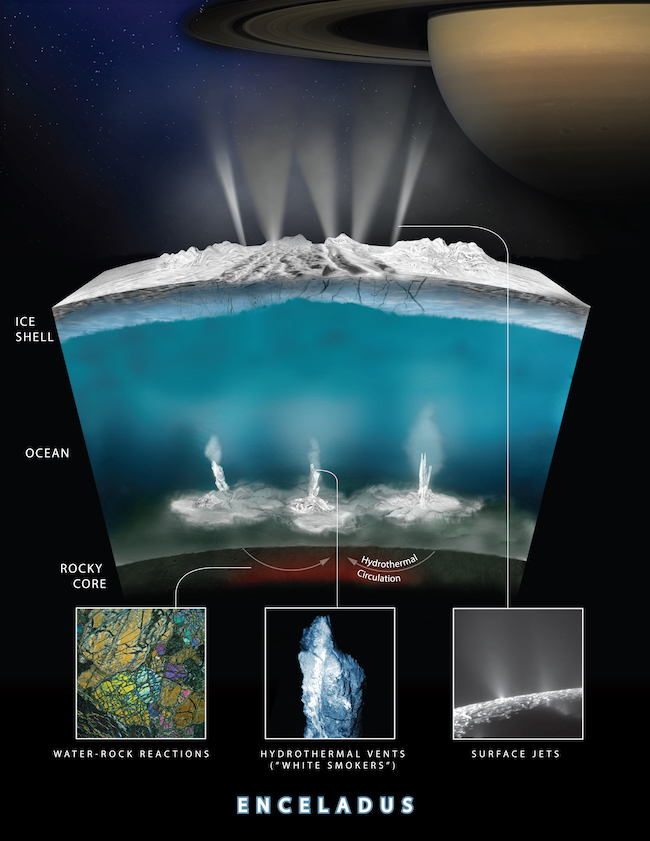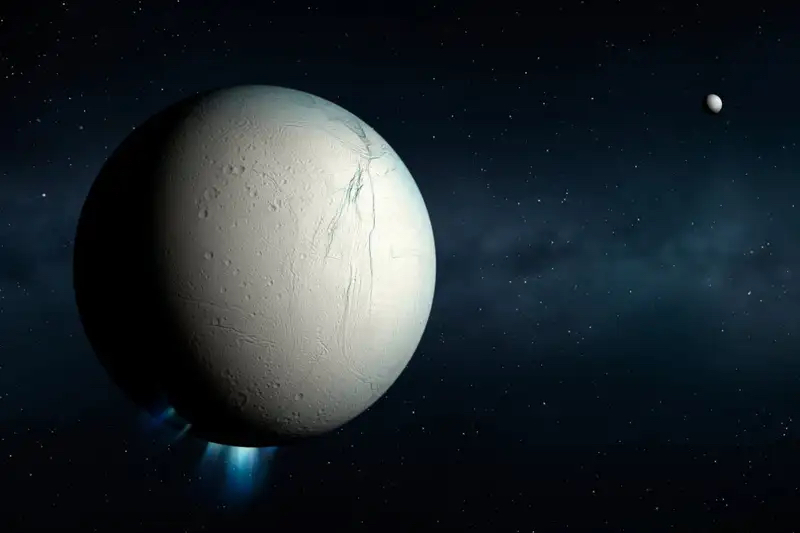
Saturn’s moon Enceladus has a global ocean of liquid water beneath its icy surface. In 2005, NASA’s Cassini spacecraft discovered water vapor plumes spewing from the little moon’s south polar surface. Cassini also showed that the subsurface ocean on Enceladus might be able to support some forms of life. It has heat, mineral nutrients and organic material. On July 20, 2022, researchers at the Massachusetts Institute of Technology (MIT) published a new study, suggesting Enceladus’ ocean is a little less salty than Earth’s oceans.
Coupled with the previous findings, this new finding bolsters the possibility of life in Enceladus’ ocean.
Wanying Kang led the research team at MIT. The researchers were able to estimate the saltiness by studying how the surface ice covers the ocean below. They published their peer-reviewed findings in Science Advances on July 20, 2022.
Karmela Padavic-Callaghan wrote about the tantalizing results in New Scientist on July 20, 2022.

The salinity of Enceladus’ ocean
On Enceladus, the salinity of the ocean, the silicate core and the ice shell all have significant impact on the ocean dynamics and habitability. As the paper outlined:
Of profound astrobiological interest, Enceladus appears to have a global saline subsurface ocean, indicating water-rock reaction at present or in the past, an important mechanism in the moon’s potential habitability. Here, we investigate how salinity and the partition of heat production between the silicate core and the ice shell affect ocean dynamics and the associated heat transport, a key factor determining equilibrium ice shell geometry.
In particular, the researchers wanted to know how the thickness of the ice shell relates to the salinity of the ocean. Saltier subsurface oceans should, generally speaking, have thicker ice over a planet’s or moon’s poles. Less salty oceans would have thinner ice. The study showed that the salinity level on Enceladus is likely intermediate. As the New Scientist article explained:
The team devised a theoretical model detailing how ocean salinity, ocean currents and ice geometry affect each other on a planet or a moon, then tweaked it to best reproduce the properties of Enceladus’s ice.
From the paper:
Among scenarios explored here, the pronounced ice thickness variations observed on Enceladus are most consistent with heating that is predominantly in the ice shell and a salinity of intermediate range.

Salinity not the only factor
Salinity isn’t the only factor when it comes to habitability, though. As the New Scientist article mentioned:
David Stevens at the University of East Anglia, UK, says that the behavior of ice and water on other planets is directly related to their habitability. At the same time, salinity is only one factor, he says.
Thinner ice over Enceladus’ poles
Interestingly, the results of the study indicate that the ice over Enceladus’ poles is thinner than at its equator. That would point to a less salty ocean. More specifically, the specific variation in ice thickness suggests that the ocean’s salinity could be as high as 30 grams of salt in a kilogram of water. That’s salty, but less than Earth’s oceans, which have 35 grams of salt per kilogram of water.
Overall, that sounds promising for the potential for life. The waters are salty, like oceans on Earth, but not too salty. If anything, Enceladus’ ocean may be a bit more benign than oceans on our planet.

Heat from the seafloor of Enceladus’ ocean
Another intriguing finding seems to support earlier data from the Cassini mission. The team found evidence for heat emanating from the ocean floor on Enceladus. Previous analysis by Cassini of water vapor and organics in Enceladus’ famous plumes suggested the existence of hydrothermal vents on the ocean floor. This new evidence would seem to agree with that, although more study is needed.
On Earth, such hydrothermal vents create an oasis for many different types of organisms. They provide essential heat and nutrients in the otherwise dark and hostile depths of the oceans.
Last year, scientists also reported evidence in the Cassini data for a lot of methane in Enceladus’ ocean. Could this be an indication of methanogenic organisms in the ocean?

Bottom line: A new study shows that the subsurface ocean on Saturn’s moon Enceladus is less salty than oceans on Earth. This bolsters the chances of Enceladus’ ocean supporting some form of life.











